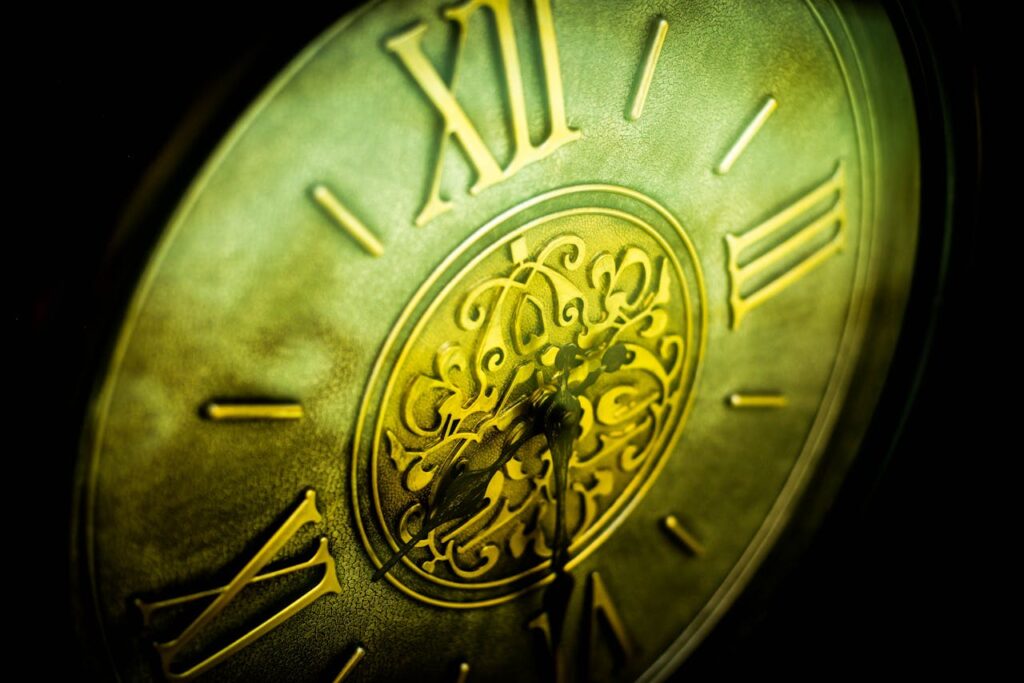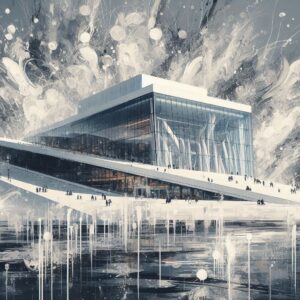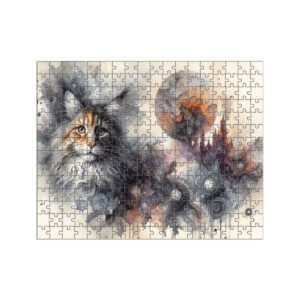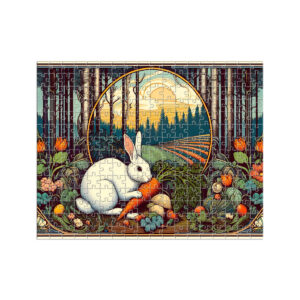
Explore & Play
Discover interesting topics and solve the accompanying crossword puzzle.
Time Period Crossword | Explore Historical Eras Today
Table of Contents
In this blog post, we invite you to engage with the Time period crossword first, allowing you to test your knowledge of significant historical eras. Once you’ve completed the crossword, you can dive into the article for a deeper understanding of each period and its impact on civilization. If you’re not familiar with the topic, feel free to read the article first, and then return to the crossword for an interactive challenge. Enjoy your journey through time!
Time Period Crossword
You can either fill in the crossword puzzle directly on this page or click the button in the bottom right corner to print it for free.

A Journey Through Time: Key Eras That Shaped Human Civilization
From the dawn of humanity to the present digital age, each era has played a pivotal role in shaping the world we know today. Understanding these time periods not only enriches our knowledge of history but also provides insight into the societal developments that have led to our current state. Accompanying this exploration is a crossword puzzle that includes various time periods and historical themes, challenging readers to engage actively with the content.
1. Prehistoric Era: The Dawn of Humanity
The Prehistoric era marks the beginning of human existence, a time when our ancestors roamed the earth without written records. During this period, humans developed essential survival skills such as hunting, gathering, and tool-making. This era is characterized by the emergence of early hominins and the eventual rise of Homo sapiens.
As humans evolved, they formed small, nomadic groups, relying on their environment for sustenance. The transition from a hunter-gatherer lifestyle to settled agricultural communities laid the foundation for future civilizations. The significance of the Prehistoric era cannot be overstated; it set the stage for the complexities of human society that would follow.
2. Ancient Civilizations: Foundations of Society
2.1 Ancient Mesopotamia
Often referred to as the cradle of civilization, Ancient Mesopotamia laid the groundwork for future societies. Located between the Tigris and Euphrates rivers, this region saw the rise of some of the earliest known cities, such as Ur and Babylon. The invention of writing, particularly cuneiform, revolutionized communication and record-keeping.
Furthermore, Mesopotamia introduced the concept of law through the Code of Hammurabi, establishing a framework for justice that influenced future legal systems. As a result, Ancient Mesopotamia’s contributions remain integral to our understanding of civilization’s foundations.
2.2 Ancient Egypt
Ancient Egypt, renowned for its monumental architecture and rich culture, offers insights into early governance and religion. The construction of the pyramids serves as a testament to the Egyptians’ engineering prowess and their belief in the afterlife. These structures, along with the Sphinx, symbolize the grandeur of a civilization that flourished along the Nile River.
Moreover, Ancient Egypt’s writing system, hieroglyphics, provided a means to record history and communicate religious beliefs. This civilization’s advancements in medicine, mathematics, and art laid the groundwork for future cultures.
2.3 Ancient Greece
The cultural and philosophical innovations of Ancient Greece continue to influence modern thought. This period is often credited with the birth of democracy, particularly in the city-state of Athens. Philosophers such as Socrates, Plato, and Aristotle shaped ideas about ethics, politics, and knowledge that resonate today.
In addition, Ancient Greece made significant contributions to art and theater, with epic poets like Homer and playwrights like Sophocles pushing the boundaries of literature. As such, the legacy of Ancient Greece remains deeply embedded in contemporary culture.
2.4 Ancient Rome
The expansive reach of Ancient Rome transformed Europe and set the stage for modern governance and law. From the establishment of the Roman Republic to the eventual rise of the Empire, Rome’s political structures have influenced countless nations. The development of roads and aqueducts showcases their engineering skills and commitment to public infrastructure.
Roman law, particularly the Twelve Tables, laid the foundation for legal systems in many Western countries. Additionally, Roman culture, including language and religion, continues to impact societies around the globe.
3. The Medieval Period: Feudalism and the Rise of Nations
The Medieval period, often characterized by feudalism, saw the establishment of powerful kingdoms and the influence of the Church. Following the fall of the Roman Empire, Europe entered a time marked by social instability and a lack of centralized power. Feudalism emerged as a way to organize society, with lords granting land to vassals in exchange for military service.
During this time, the Church held significant sway over people’s lives, shaping morality, education, and politics. The Crusades also characterized this period, as they aimed to reclaim the Holy Land and foster cultural exchanges between Europe and the East.
4. The Renaissance: Rebirth of Art and Learning
The Renaissance marked a cultural revival that celebrated humanism, art, and scientific inquiry. Beginning in Italy during the 14th century, this movement saw a renewed interest in classical antiquity and a focus on individual potential. Artists like Leonardo da Vinci and Michelangelo produced masterpieces that continue to captivate audiences today.
Moreover, the invention of the printing press by Johannes Gutenberg revolutionized the dissemination of knowledge, allowing ideas to spread rapidly across Europe. This period laid the groundwork for the modern world, emphasizing the importance of education and critical thinking.
5. The Age of Enlightenment: Reason and Reform
The Age of Enlightenment brought forth new ideas that challenged traditional authority and promoted individual rights. Philosophers such as John Locke, Voltaire, and Rousseau advocated for reason, liberty, and the social contract, laying the foundation for democratic principles.
As a result, the Enlightenment spurred various social and political reforms, influencing revolutions in America and France. This era’s emphasis on rational thought and scientific inquiry paved the way for future advancements in philosophy, politics, and human rights.
6. Industrial Revolution: Transforming Society
The Industrial Revolution ushered in an era of technological innovation that transformed economies and societies. Beginning in the late 18th century, this period marked the shift from agrarian economies to industrialized ones, driven by advancements in machinery and manufacturing processes.
Factories emerged, creating jobs and changing the landscape of cities. While this transformation led to increased productivity, it also resulted in harsh working conditions and urban overcrowding. The Industrial Revolution fundamentally altered social structures and laid the groundwork for modern economic systems.
7. The Victorian and Edwardian Eras: Progress and Change
7.1 Victorian Era
The Victorian era, defined by Queen Victoria’s reign, saw dramatic social and cultural changes. This period was marked by rapid industrial growth and a flourishing of arts and literature. Authors like Charles Dickens and the Brontë sisters brought attention to social issues and the complexities of human experience.
Furthermore, the Victorian era was characterized by strict social norms and a focus on morality, which shaped public life. Innovations in science and technology, such as the telegraph and the steam engine, revolutionized communication and travel.
7.2 Edwardian Era
The Edwardian era represented a time of social upheaval and cultural evolution in Britain. Following the Victorian age, this period embraced a more relaxed social atmosphere, allowing for greater expression in art, fashion, and literature. Writers like H.G. Wells and E.M. Forster began to challenge societal norms through their works.
Additionally, the Edwardian era witnessed the rise of social movements advocating for women’s rights and labor reforms. This progressive spirit paved the way for future advancements in social justice.
8. The 20th Century: Conflict and Transformation
8.1 World War I
World War I reshaped global politics and society, marking the end of empires and the rise of new ideologies. Triggered by a complex web of alliances and tensions, the war resulted in unprecedented loss of life and destruction. The Treaty of Versailles attempted to establish peace but left many nations dissatisfied, setting the stage for future conflicts.
8.2 Roaring Twenties
The Roaring Twenties was a time of economic prosperity and cultural change, characterized by a break from tradition. This decade saw the emergence of jazz music, flapper culture, and a flourishing of arts, reflecting a society eager for change and experimentation. However, this prosperity was short-lived, as the Great Depression loomed on the horizon.
8.3 Great Depression
The Great Depression marked a severe economic downturn that affected millions worldwide. Triggered by the stock market crash of 1929, this period saw widespread unemployment and poverty. Governments struggled to respond effectively, leading to the implementation of social safety nets and economic reforms.
8.4 World War II
World War II was a global conflict that reshaped borders and power dynamics across the globe. Spanning from 1939 to 1945, this war involved numerous nations and resulted in significant casualties. The aftermath led to the establishment of the United Nations and a renewed commitment to international cooperation.
8.5 The Cold War
The Cold War defined global relations for decades, creating a landscape of tension and ideological conflict. Following World War II, the rivalry between the United States and the Soviet Union led to an arms race and proxy wars. This period profoundly impacted politics, culture, and society around the world.
9. The Modern Era: Innovations and Social Change
9.1 Post-War Era
The Post-War era focused on reconstruction and the establishment of new global institutions. In the wake of World War II, nations prioritized rebuilding economies and societies while fostering cooperation through organizations like the United Nations and NATO.
9.2 1960s Counterculture
The 1960s counterculture movement challenged societal norms and advocated for civil rights and peace. Young people rejected traditional values, embracing new forms of expression in music, art, and activism. This era laid the groundwork for significant social change and the fight for equality.
9.3 Space Age
The Space Age symbolized human ingenuity and the quest for exploration beyond Earth. Initiated by the launch of Sputnik in 1957, this era saw remarkable achievements, including the Apollo moon landing in 1969. The Space Age inspired generations to dream about the possibilities of space travel and exploration.
9.4 Digital Revolution
The Digital Revolution transformed communication, information sharing, and everyday life. With the advent of computers and the internet, society entered an era of connectivity and information access. This technological advancement continues to shape how we live, work, and interact.
10. Epilogue: Reflecting on the Past to Understand the Future
As we reflect on the key eras that shaped human civilization, we gain valuable insights into our past. Each period brought challenges, innovations, and lessons that continue to influence our present and future. Understanding these historical developments enriches our perspective and encourages us to engage actively with the world around us.
To dive deeper into the fascinating history of these eras, why not take a moment to play the accompanying crossword puzzle? It’s a fun way to reinforce what you’ve learned and challenge your knowledge of history!
Share to...
I hope you enjoy the content.
Want to receive our daily crossword puzzle or article? Subscribe!
You may also be interested in
Share to…
Want to receive our daily crossword puzzle?
-
Jigsaw Puzzles
Oslo Opera House Abstract Jigsaw Puzzle 250 | 300 | 500 Pieces
kr 348,00 – kr 439,00Price range: kr 348,00 through kr 439,00 Select options This product has multiple variants. The options may be chosen on the product page -
Jigsaw Puzzles
Maine Coon Cat Ink Wash Puzzle 250 | 300 | 500 Pieces
kr 348,00 – kr 439,00Price range: kr 348,00 through kr 439,00 Select options This product has multiple variants. The options may be chosen on the product page -
Jigsaw Puzzles
Art Nouveau Puzzle – White Rabbit in a Whimsical Garden 250 | 300 | 500 Pieces
kr 348,00 – kr 439,00Price range: kr 348,00 through kr 439,00 Select options This product has multiple variants. The options may be chosen on the product page

















